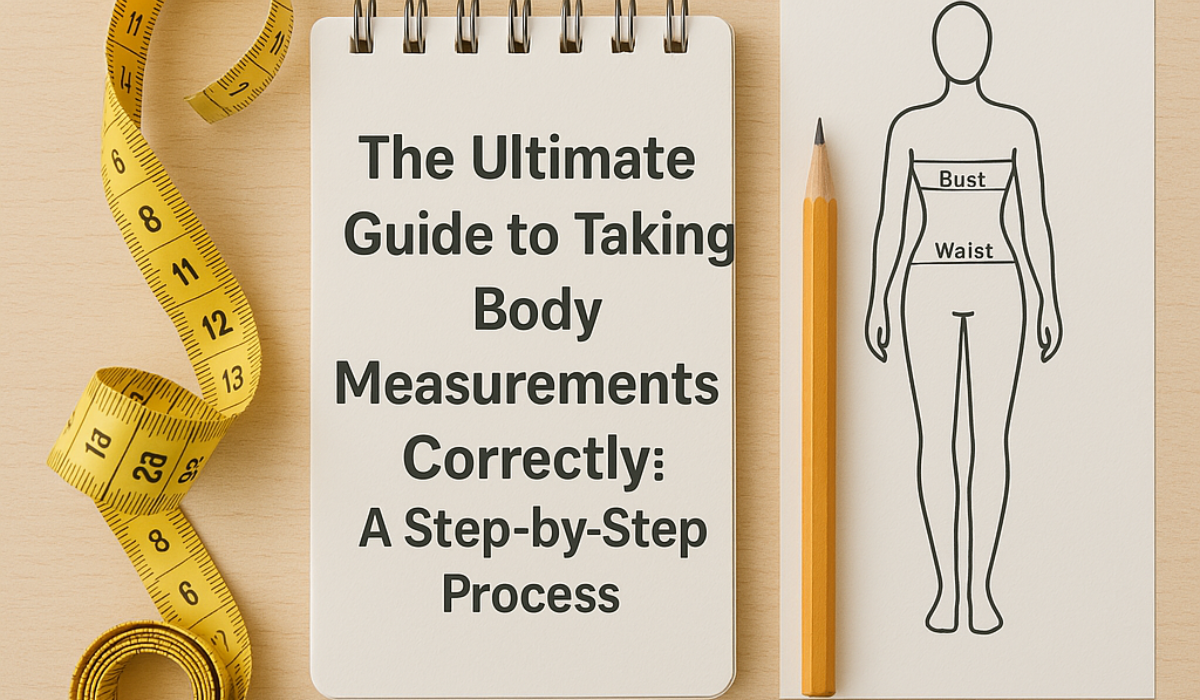Tracking body measurements is a powerful way to monitor inch loss, muscle gain, and body composition changes. Here’s a step-by-step guide to ensure accurate tracking.
Step 1: Gather Your Tools
- Flexible Measuring Tape – A tailor’s tape is ideal for body measurements.
- Digital Weighing Scale – For tracking weight alongside measurements.
- Mirror – Helps ensure correct tape placement.
- Notebook or App – To record and compare progress over time.
Step 2: Choose the Right Time
- Best Time: Morning, before eating or drinking, for the most consistent results.
- Frequency: Once every 2-4 weeks; daily changes are minor and can be misleading.
Step 3: Prepare Your Body
- Wear minimal or fitted clothing to avoid adding extra inches.
- Stand tall but relaxed, with a natural posture.
- Take measurements on bare skin for the most accurate reading.
Step 4: Measure Key Body Parts
1. Weight
- Use a digital weighing scale for accuracy.
- Weigh yourself at the same time of day under consistent conditions (e.g., before breakfast).
- Stand evenly on the scale without leaning or shifting weight.

2. Chest/Bust
- Wrap the tape around the fullest part of your chest.
- Keep the tape snug but not tight.
- Stand naturally without puffing out the chest.

3. Waist
- Locate the narrowest part of your torso (just above the belly button).
- Breathe out naturally and measure without sucking in.
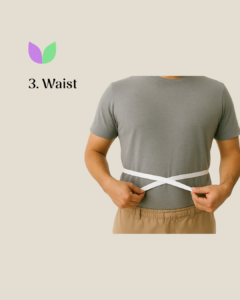
4. Hips
- Stand with feet together and wrap the tape around the widest part of your hips.
- Ensure the tape stays level all around.
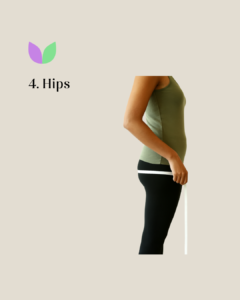
5. Arms
- Measure the fullest part of your upper arm, typically midway between shoulder and elbow.
- Keep the arm relaxed (don’t flex!).
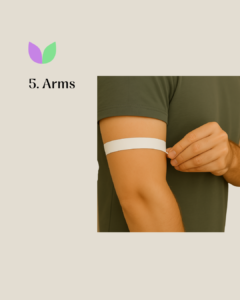
6. Thighs
- Measure around the thickest part of your upper thigh.
- Keep feet slightly apart and stand relaxed.
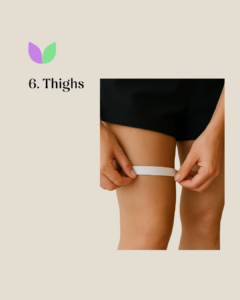
7. Calves
- Measure the widest part of your lower leg.
- Ensure equal weight distribution on both feet.
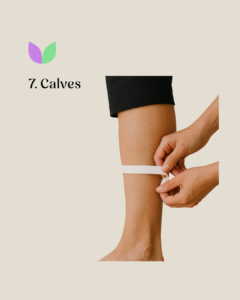
Step 5: Record and Track Progress
- Use a Notebook/App: Write down each measurement and track changes over time.
- Compare Over Time: Progress is gradual; don’t stress over minor fluctuations.
- Pair with Photos: Take front, side, and back photos for a visual record.
Common Mistakes to Avoid
- Measuring over loose clothing.
- Pulling the tape too tight or too loose.
- Using different measuring tapes each time.
- Measuring at different times of the day.
- Relying solely on the scale for progress tracking.
Final Thoughts
Body measurements give a clearer picture of transformation. By following this practical step-by-step guide, you’ll track progress accurately and stay motivated. Remember, consistency is key—trust the process and celebrate every inch lost and gained!
